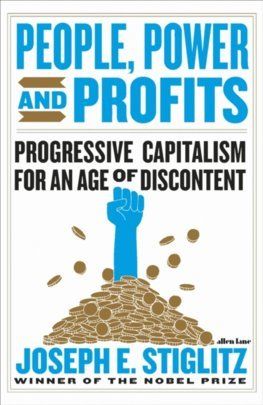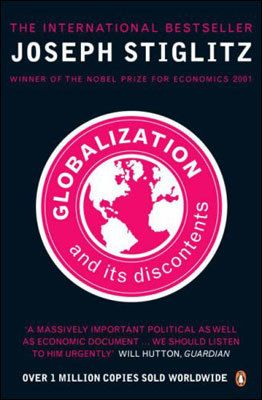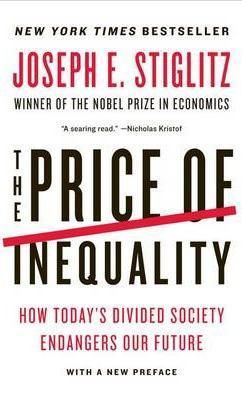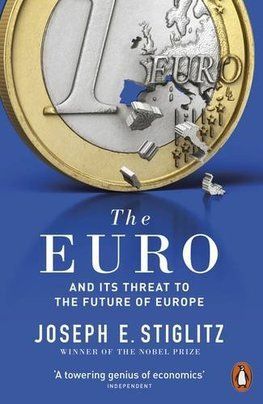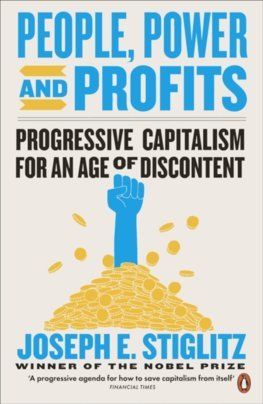Joseph Stiglitz
autor
Euro
Několik let po finanční krizi se ukazuje, že jednotná evropská měna byla chybný projekt: nebral v úvahu různorodost evropských států a především v sobě neměl (a nemá) zabudovány mechanismy, které by Evropu ochránily před hospodářskými krizemi, jako byla ta z roku 2007/ 2008.
Euro vyprojektovali politici s přesvědčením, že ekonomická integrace automaticky přinese integraci politickou. Dnes je zřejmé, že se mýlili.
Joseph Stiglitz, nositel Nobelovy ceny za ekonomii, zasvěceně popisuje genezi problémů, které euro přineslo. Ukazuje, jak jednotná měna zvýraznila rozdíly mezi „věřitelskou Evropou“ v čele s Německem, a „Evropou dlužníků“ v čele s Řeckem.
Podle Stiglitze je neudržitelný současný stav, kdy se „hasí“ jen ty nepalčivější problémy. Buď se eurozóna musí proměnit v plnohodnotnou měnovou unii, která bude mít společnou fiskální politiku (společný rozpočet, společné dluhopisy), nebo se musí rozpadnout na „dvě, tři kompatibilnější části“, případně zavést „flexibilnější euro“, což je částečně návrat k národním měnám. Pokud se nic nestane, můžou vysoká nezaměstnanost a další sociální problémy v řadě evropských zemí postupně vést k nepokojům, růstu napětí a nepředvídatelným řešením, jako jsme viděli v případě Brexitu.
Pozoruhodná, věcná a srozumitelná analýza globalizované a stále propojenější světové ekonomiky.
Na sklade 1Ks
17,81 €
18,75 €
Power, People and Profits
From Nobel Prize-winning economist and bestselling author Joseph Stiglitz, this account of the dangers of free market fundamentalism reveals what has gone so wrong, but also shows us a way out. We all have the sense that our economy tilts toward big business, but as Joseph E. Stiglitz explains in People, Power and Profits, a few corporations have come to dominate entire sectors, contributing to skyrocketing inequality and slow growth.
This is how the financial industry has managed to write its own regulations, tech companies have accumulated reams of personal data with little oversight, and government has negotiated trade deals that fail to represent the best interests of workers. Too many have made their wealth through exploitation of others rather than through wealth creation. If something isn't done, new technologies may make matters worse, increasing inequality and unemployment.
Stiglitz identifies the true sources of wealth and increases in standards of living, based on learning, advances in science and technology, and the rule of law. He shows that the assault on the judiciary, universities, and the media undermines the very institutions that have long been the foundation of economic prosperity and democracy. Helpless though we may feel today, we are far from powerless.
In fact, the economic solutions are often quite clear. We need to exploit the benefits of markets while taming their excesses, making sure that markets work for people and not the other way around. If enough rally behind this agenda for change, we can create a progressive capitalism that will recreate a shared prosperity.
Stiglitz shows how a decent middle-class life can once again be attainable by all.
Formování učící se společnosti
Co je skutečným pramenem prudkého růstu životní úrovně v posledních dvou stoletích? Co odlišuje úspěšné firmy od neúspěšných? Proč se některým rozvojovým zemím daří dohánět náskok vyspělého světa, zatímco jiné setrvávají v chudobě navzdory tomu, jak důsledně se řídí radami uznávaných ekonomických expertů a světových institucí? Klíč k odpovědím na tyto otázky nespočívá v akumulaci kapitálu, ani v množství zdrojů či výstupů, ale ve schopnosti učit se a získané znalosti efektivně sdílet. Autoři této knihy vysvětlují, v čem se produkce znalostí liší od produkce jiných statků a proč tržní ekonomika sama o sobě nedokáže zajistit jejich efektivní tvorbu ani šíření.
A viharos kilencvenes évek
A világ eddigi legprosperálóbb tíz évének története A globalizáció és visszásságai Nobel-díjas szerzőjének új könyve az 1990-es évek gazdasági fellendülésének és hanyatlásának érdekfeszítő történetével foglalkozik - hogyan és miért zajlottak ezek a folyamatok, miként szóródtak szét a pusztulás magvai a látszólagos virágzás időszakában, és miként nem tanul a mai napig sem Amerika, sem a világ a hibákból.
Vypredané
12,04 €
12,67 €
Globalization and Its Discontents
In this hugely controversial book, the most recent winner of the Nobel Prize for Economics argues that though globalization should be a powerful force for good, it has been badly mishandled by the West (especially its lead institutions, the World Bank and the IMF), and that the anti-globalizing protestors have much to say that we should listen to. Coming from a figure of Stiglitz's background and authority, this is an explosive message which will change the way we regard modern global politics.
Vypredané
11,39 €
11,99 €
Price of Inequality
The impact of inequality is now increasingly understood - higher crime, health problems and mental illness, lower educational achievements and life expectancy. But what are the causes of inequality, why is it growing so rapidly and what are its economic impacts? In this exceptional book Joseph Stiglitz gives the answers.He shows how, left to their own devices, markets are neither efficient nor stable and tend to accumulate money in the hands of the few. He also demonstrates how political institutions, far from countering these trends, often enhance them. Arguing that 'another world is possible', The Price of Inequality provides a powerful, vital critique of free-market ideas.
Vypredané
18,00 €
18,95 €
The Price of Inequality
America currently has the most inequality, and the least equality of opportunity, among the advanced countries. While market forces play a role in this stark picture, politics has shaped those market forces. In this best-selling book, Nobel Prize-winning economist Joseph E. Stiglitz exposes the efforts of well-heeled interests to compound their wealth in ways that have stifled true, dynamic capitalism. Along the way he examines the effect of inequality on our economy, our democracy, and our system of justice. Stiglitz explains how inequality affects and is affected by every aspect of national policy, and with characteristic insight he offers a vision for a more just and prosperous future, supported by a concrete program to achieve that vision.
Vypredané
11,39 €
11,99 €
Making Globalization Work
Building on the international bestseller Globalization and Its Discontents, Joseph E. Stiglitz offers here an agenda of inventive solutions to our most pressing economic, social, and environmental challenges, with each proposal guided by the fundamental insight that economic globalization continues to outpace both the political structures and the moral sensitivity required to ensure a just and sustainable world. As economic interdependence continues to gather the peoples of the world into a single community, it brings with it the need to think and act globally. This trenchant, intellectually powerful, and inspiring book is an invaluable step in that process.
Vypredané
14,20 €
14,95 €
Freefall
The Great Recession, as it has come to be called, has impacted more people worldwide than any crisis since the Great Depression. Flawed government policy and unscrupulous personal and corporate behavior in the United States created the current financial meltdown, which was exported across the globe with devastating consequences. The crisis has sparked an essential debate about America s economic missteps, the soundness of this country s economy, and even the appropriate shape of a capitalist system. Few are more qualified to comment during this turbulent time than Joseph E. Stiglitz. Winner of the 2001 Nobel Prize in Economics, Stiglitz is an insanely great economist, in ways you can t really appreciate unless you re deep into the field (Paul Krugman, New York Times). In Freefall, Stiglitz traces the origins of the Great Recession, eschewing easy answers and demolishing the contention that America needs more billion-dollar bailouts and free passes to those too big to fail, while also outlining the alternatives and revealing that even now there are choices ahead that can make a difference. The system is broken, and we can only fix it by examining the underlying theories that have led us into this new bubble capitalism. Ranging across a host of topics that bear on the crisis, Stiglitz argues convincingly for a restoration of the balance between government and markets. America as a nation faces huge challenges in health care, energy, the environment, education, and manufacturing and Stiglitz penetratingly addresses each in light of the newly emerging global economic order. An ongoing war of ideas over the most effective type of capitalist system, as well as a rebalancing of global economic power, is shaping that order. The battle may finally give the lie to theories of a rational market or to the view that America s global economic dominance is inevitable and unassailable. For anyone watching with indignation while a reckless Wall Street destroyed homes, educations, and jobs; while the government took half-steps hoping for a just-enough recovery; and while bankers fell all over themselves claiming not to have seen what was coming, then sought government bailouts while resisting regulation that would make future crises less likely, Freefall offers a clear accounting of why so many Americans feel disillusioned today and how we can realize a prosperous economy and a moral society for the future."
Vypredané
11,35 €
11,95 €
Globalization and Its Discontents
An insider's analysis of the major institutions of globalization. Economist and Nobel Prize winner Joseph E. Stiglitz had a ringside seat for most of the major economic events of the 1990s including stints as chairman of the Council of Economic Advisors and chief economist at the World Bank. Particularly concerned with the plight of the developing nations he became increasingly disillusioned as he saw the International Monetary Fund and other major institutions put the interests of Wall Street and the financial community ahead of the poorer nations.
Vypredané
13,25 €
13,95 €
Great Divide
Why has inequality increased in the Western world - and what can we do about it? In The Great Divide, Joseph E. Stiglitz expands on the diagnosis he offered in his best-selling book The Price of Inequality and suggests ways to counter this growing problem. With his characteristic blend of clarity and passion, Stiglitz argues that inequality is a choice - the cumulative result of unjust policies and misguided priorities. In these essays, articles and reflections, Stiglitz fully exposes the inequality - from its dimensions and its causes to its consequences for the world - that is afflicting America and other Western countries in thrall to neoliberalism. From Reagan-era policies to the Great Recession and its long aftermath, Stiglitz delves into the processes and irresponsible policies - deregulation, tax cuts for the rich, the corruption of the political process - that are leaving many people further and further behind and turning the dream of a socially mobile society into an ever more unachievable myth. With formidable yet accessible economic insight, he urges us to embrace real solutions: increasing taxes on corporations and the wealthy; investing in education, science, and infrastructure; helping homeowners instead of banks; and, most importantly, doing more to restore the economy to full employment. Stiglitz's analysis reaches beyond America - the inequality leader of the developed world - to draw lessons from Scandinavia, Singapore, and Japan, and he argues against the tide of unnecessary, destructive austerity that is sweeping across Europe. Ultimately, Stiglitz believes our choice is not between growth and fairness; with the right policies, we can choose both.
Vypredané
15,15 €
15,95 €
The Euro - And its Threat to the Future of Europe
Solidarity and prosperity fostered by economic integration: this principle has underpinned the European project from the start, and the establishment of a common currency was supposed to be its most audacious and tangible achievement. Since 2008, however, the European Union has ricocheted between stagnation and crisis. The inability of the eurozone to match the recovery in the USA and UK has exposed its governing structures, institutions and policies as dysfunctional and called into question the viability of a common currency shared by such different economies as Germany and Greece. Designed to bring the European Union closer together, the euro has actually done the opposite: after nearly a decade without growth, unity has been replaced with dissent and enlargements with prospective exits. Joseph Stiglitz argues that Europe's stagnation and bleak outlook are a direct result of the fundamental flaws inherent in the euro project - economic integration outpacing political integration with a structure that promotes divergence rather than convergence. Money relentlessly leaves the weaker member states and goes to the strong, with debt accumulating in a few ill-favoured countries. The question then is: Can the euro be saved? Laying bare the European Central Bank's misguided inflation-only mandate and explaining why austerity has condemned Europe to unending stagnation, Stiglitz outlines the fundamental reforms necessary to the structure of the eurozone and the policies imposed on the member countries suffering the most. But the same lack of sufficient political solidarity that led to the creation of a flawed euro twenty years ago suggests that these reforms are unlikely to be adopted. Hoping to avoid the huge costs associated with current policies, Stiglitz proposes two other alternatives: a well-managed end to the common currency; or a bold, new system dubbed 'the flexible euro.' This important book, by one of the world's leading economists, addresses the euro-crisis on a bigger intellectual scale than any predecessor.
Vypredané
21,80 €
22,95 €
The Euro
Designed to bring Europe closer together, the euro has actually done the opposite: after nearly a decade without growth, unity has been replaced with dissent and enlargements with prospective exits. Joseph Stiglitz argues that Europe's stagnation and bleak outlook are a direct result of the fundamental flaws inherent in the euro project - economic integration outpacing political integration with a structure that actively promotes divergence rather than convergence. Money relentlessly leaves the weaker member states and goes to the strong, with debt accumulating in a few ill-favoured countries. The question now is: can the euro be saved?
Laying bare the European Central Bank's misguided inflation-only mandate and explaining why austerity has condemned Europe to unending stagnation, Stiglitz outlines three possible ways forward: fundamental reforms in the structure of the Eurozone and the policies imposed on the member countries suffering the most; a well-managed end to the euro; or a bold, new system he dubs the 'flexible euro;. This important book, by one of the world's leading economists, addresses the euro-crisis on a bigger intellectual scale than any predecessor.
Vypredané
16,10 €
16,95 €
Globalization and Its Discontents Revisited
hen it was first published, Globalization and Its Discontents quickly became a bestseller and a touchstone in the globalization debate. Renowned economist and Nobel Prize winner Joseph E. Stiglitz argued that the International Monetary Fund and other major institutions put the interests of Wall Street and other corporate interests ahead of the developing nations they were supposedly helping, leading to political unrest and rampant inequality. Since then, globalization has continued to be mismanaged and has left a trail of disaffected citizens in its wake. Discontent with globalization is no longer a problem just for developing nations, as made clear by Donald Trump's election to the presidency. Stiglitz's powerful and prescient messages remain essential reading. "Accessible, provocative, and highly readable."-New York Times "This book is everyone's guide to the misgovernment of globalization. Stiglitz explains it here in plain and compelling language." -James K. Galbraith, University of Texas at Austin
Vypredané
13,25 €
13,95 €
People, Power, and Profits
We all have the sense that our economy tilts toward big business, but, as Joseph E. Stiglitz explains in People, Power, and Profits, a few corporations now dominate entire sectors, contributing to skyrocketing inequality and slow growth. This is how the financial industry has managed to write its own regulations, tech companies have accumulated reams of personal data without oversight, and the government has negotiated trade deals that fail to represent the interests of workers.
Too many have made their wealth through exploitation of others rather than through wealth creation. New technologies may make matters worse, increasing inequality and unemployment. Stiglitz identifies the true sources of wealth and of increases in standards of living, based on learning, advances in science and technology, and the rule of law.
He shows that the assault on the judiciary, universities, and the media undermines the very institutions that have long been the foundation of economic prosperity and democracy. He sets out the economic solutions which will exploit the benefits of markets while taming their excesses, and how a decent middle-class life can once again be attainable for all.

